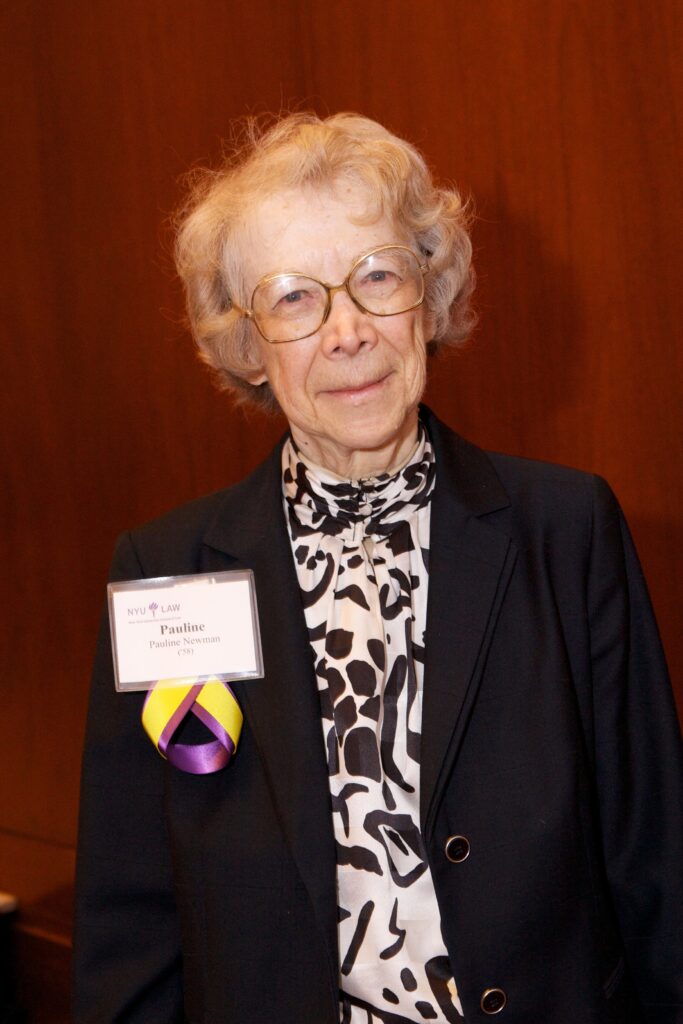Judge Newman Should Resign
Legendary judge is tarnishing her legacy and impugning the judiciary by not quitting
Federal Circuit appears not have a wellness committee to help judges understand the signs of decline
 Fix the Court today is calling on Federal Circuit Judge Pauline Newman to resign — that is, retire and not simply take senior status — following a series of incidents that suggest she is experiencing cognitive decline.
Fix the Court today is calling on Federal Circuit Judge Pauline Newman to resign — that is, retire and not simply take senior status — following a series of incidents that suggest she is experiencing cognitive decline.
Newman is among the nation’s most accomplished and well-respected federal judges. She was among first judges appointed to the Federal Circuit after its creation 40 years ago and has compiled a significant body of work that comprises countless precedents on patent law, for which there is likely no equal.
But the facts laid out in Federal Circuit Chief Judge Moore’s e March 24 and April 13 orders are unequivocal: Judge Newman can no longer do the job.
“Judge Newman should take the many, many hints from her colleagues, who clearly care for her, and retire,” FTC’s Gabe Roth said. “It’s sad to say, but we may have reached the point where her obstinance is tarnishing her legacy.”
Other groups, pundits and health experts are more capable of reviewing several of the issues involved, but Fix the Court will offer the following two points based on its research and expertise:
First, FTC has long argued for every circuit to establish a wellness committee to help judges understand the signs of cognitive decline and how to deal with them, yet the Federal Circuit appears to be one of only a few that does not have one today.
The first such committee was established more than 20 years ago in the Ninth Circuit; it encourages judges to undergo mental health assessments, hosts neurological experts to speak about the warning signs of cognitive impairment, empowers the families and friends of judges to bring forward concerns about a judge’s mental health and offers a hotline for court staff and judges to receive advice about dealing with signs of decline.
Periodically from 2017 to 2019, FTC surveyed the circuits to determine how many had established a formal wellness committees, and in 2017, a Federal Circuit official told us that didn’t have one.
“We have no geographically separate subordinate courts, our judges interact with one another constantly, and we have an on-site occupational health nurse,” then-Deputy Chief Clerk Jarrett Perlow wrote.
FTC’s Elise Spenner reached out to the Federal Circuit last month for an update but did not hear back.
Per our Nov. 2019 research, the First, Third, Fifth, Eighth, Ninth, Tenth, and D.C. Circuits had each established some form of a judicial wellness committee by that point in time.
Last month Spenner learned that the Fourth and Sixth Circuits in the intervening years had also created wellness committees, leaving the Second, Seventh, Eleventh and Federal Circuits as the only ones to appear not to have one.
“A wellness committee is not a panacea, but establishing one shows a court’s commitment to the cognitive well-being of its judges and to understanding the issues that judges will face as they age,” Roth added.
Second, FTC believes that a chief judge, both when they do and do not identify a complaint against a fellow judge under the Judicial Conduct and Disability Act, should not then be placed on the special committee that’s investigating the conduct of the judge. (Yes, it’s in the statue and regulations, so it’s not on Chief Judge Moore here; it’s simply a poorly thought out rule.)
This would be akin to a judge hearing a case on the district court level and then hearing the same case on appeal after said judge is elevated to the circuit court.
It shouldn’t happen, and there should be a fix to allow for a different judge — say, the next in line, like an “acting chief judge” — to sit on the special committee.